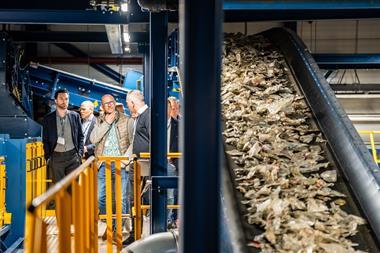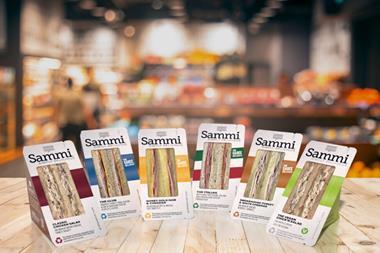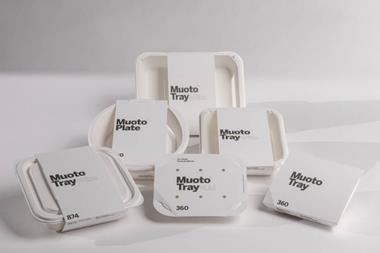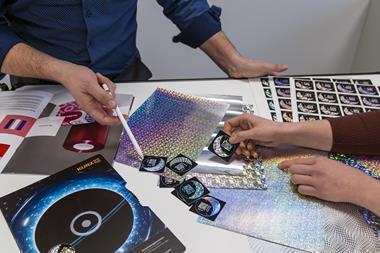Libby White spoke with three of the big names in filling machinery: Bosch, Sidel, and KHS, about the latest innovations in the field and the trends they see in the marketplace driving their solutions.
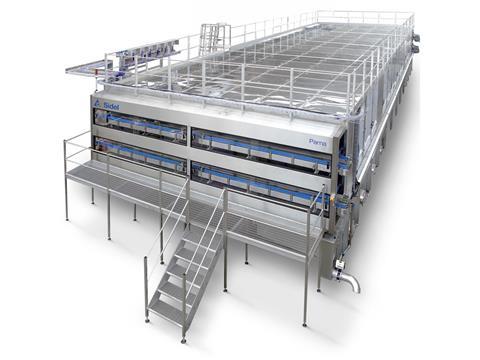
Robert van Mol, product manager for vertical form fill seal at Bosch Packaging Technology, discusses the latest trends driving filling solutions for the confectionery and snacks market. Gabriele Gatti, filling product manager, Sidel, tells us about hot fill technology for the beverages market and sensitive drinks in particular. KHS shines a spotlight on the optimum filling machinery for CSDs, water and beer.
FFS!
Every time you go to a supermarket, there are new products, rebranded treats or new pack styles for your favourite brands. This is largely driven by the broad and fast-moving consumer needs, which require equal flexibility from food producers.
“At Bosch we see this trend in the confectionery and snacks segments in particular: individually wrapped snacks for on-the-go demand, family packs for summer picnics, or promotional packaging to grab attention,” says Mr van Mol. As a result, confectionery producers require shorter production runs, frequent format changes and unprecedented flexibility in pack styles, formats and sizes.
To address this need, Bosch Packaging Technology has designed a new version of the proven SVE 2520 DZ (Doy Zip) Vertical Form Fill and Seal (VFFS) machine, which is adaptable to larger formats, up to 320 millimetres high – the SVE 3220 DZ.
The compact continuous motion machine allows for a higher output of excellent quality bags, resulting in lower cost per bag and a faster ROI. Additionally, the machine produces seven of the most popular bag styles: pillow, gusseted, block bottom, corner seal, full corner, 3-sided, as well as Doy and Doy Zip with its patent-pending zipper applicator. As a result, the premium quality, attractive shape and size of the bags help drive greater visibility and consumer preference for food products at point-of-sale.
Sensor controlled product detection
“Confectionery manufacturers are also looking for high-speed hygienic packaging equipment with smart technologies to reduce downtime and operator error,” continues Mr van Mol. “Thus, Bosch has extended its SVC vertical form, fill and seal platform with the new SVC 1820 bagger.”
The SVC features industry 4.0 solutions for increased productivity and improved operator guidance: An integrated Yamato multihead weigher, coupled with patented sensor-controlled product detection, automatically adjusts machine settings for product transfer, optimising speed and enabling the highest possible output per product type. The sensor detects the product’s behaviour in the format tube of the VFFS machine and enables automation of all functions, including bag sealing and optimal product discharge. Optimized synchronisation of the multihead weigher and the SVC 1820 reduces downtime and delivers consistently high bag quality.
PET aseptic and hot fill technology
Juices, still drinks, isotonics and teas currently continue to make up a fast growing segment within the global beverage industry. Gabriele Gatti, filling product manager, Sidel, comments, “With an annual market growth of six per cent the consumption of sensitive drinks such as these presents significant business opportunities for beverage producers worldwide. To capitalise on the opportunities, producers in this field are increasingly turning to packaging solutions using PET aseptic or Hot Fill technology.”
She continues, “For instance, for the production of sensitive beverages distributed at ambient temperature, hot filling into PET bottles is an attractive and sustainable way to ensure the product’s complete safety across its entire shelf life. This does require that the equipment used provides precise and efficient filling while handling bottles smoothly, safely and gently.”
Increasingly automated processes
Finding the optimum solution for any bottling line goes beyond any simple choice of equipment. As well as meeting the demand for established products, in order to stay competitive in a growing market beverage producers today need to anticipate developing trends in new products.
Gabriele Gatti, Sidel, says, “Lifestyles and tastes are changing, with consumers in emerging and established markets alike now looking for healthier products still able to link with traditional, local flavours. The challenge to produce the innovative and different drinks that meet these new criteria is already resulting in shorter production cycles and faster changeovers.”
To answer these needs, along with the quest for longer uptime and improved productivity, several leading equipment suppliers are now enriching their solutions with more automated processes. This gives producers the flexibility to adjust production according to the various beverages and formats with which they deal. Also, systems that are modular and simple in design have the additional benefit of facilitating the rapid replacement of component parts when new technologies are developed or when changes in market demand make it necessary.
Block systems
Block systems are in demand more than ever, as the trend is towards increasingly more compact systems. Today, sustainability and a small environmental footprint are important selling points in addition to eliminating the necessity of extra conveying systems.
With its InnoPET BloFill and the TriBlock and FreshSafe Block, the KHS Group offers three blocked systems designed to bottle CSDs and water in PET. Incidentally, while water accounts for 51 per cent of all products bottled in PET worldwide, beer is the beverage most frequently bottled in glass (58 per cent).
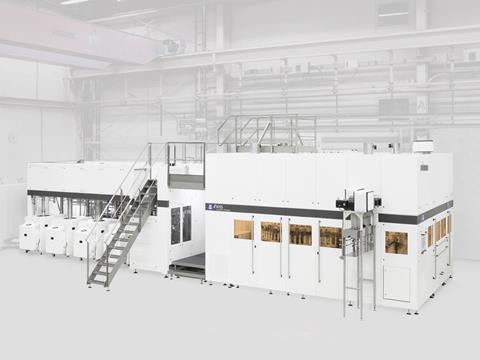
KHS is responding to the demand for increased blocking with various adaptations and innovations: smaller containers and bottles are processed on machines with a high packing density of blow stations and filling valves. Automatic format changing as well as fast product changeover increase the system availability. This means that even smaller batches can be produced virtually loss-free. Particularly important for loss-free changeover is an optimum flow of preforms, closures, and products.
A protective layer
KHS offers a pioneering innovation with its Plasmax process for high-quality interior coatings of PET packaging. A protective layer of ultra-thin glass made of SiOx (silicon oxide) prevents oxygen and other substances from getting into the PET bottle and stops ingredients such as CO2 from getting out thereby increasing the shelf life of the products.
InnoPET Plasmax machines for sensitive products and CSDs are now in operation worldwide. The trend towards compact, flexible, and individual machines with variable and smaller capacities is intensified by the craft brewing scene.
Complete systems
Bosch has launched the online platform solutions4value.com in response to the growing market need for complete system solutions. Choosing a complete system is far more complex than selecting an individual machine. “Our goal is to make the process of finding the right solution as easy and clear as possible,” says Mr van Mol. “The new microsite allows manufacturers to review various bag, carton and case styles and to identify the ideal system solution for their specific needs.”
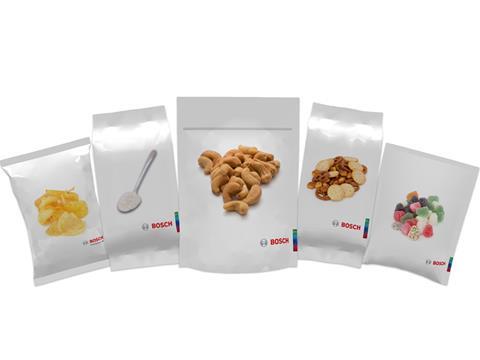
Additionally, the next generation Human Machine Interface HMI 4.0 and an innovative format part management system reduce the risk of operator error by indicating whether all format parts are in place and match the selected bag configurations, allowing easy set-up and fast changeovers for increased uptime.
KHS notes the value of monitoring production processes, the demand for which in the craft brewing scene is answered by its Plug&Produce feature for fast commissioning and production. In the age of Industry 4.0, monitoring production processes with the help of measuring instruments and sensors such as pressure sensors in the filling valves and camera-based monitoring of high-pressure injection is standard at KHS. Controlled quality independent of the machine operator is thus achievable. Machine and system availability is increased by predictive maintenance, condition monitoring, and networked systems.
Gabriele Gatti concludes: “To optimise performance, ensure detailed control and transparency throughout the whole process and deliver a bottle which stands out on the supermarket shelf, more and more producers of sensitive drinks are taking a holistic approach to production. This is where the installation of complete lines comes as the natural choice, enhanced by extensive packaging expertise and ongoing services. This is something that only a full solution partner can offer, to ensure great quality, productivity and efficiency throughout the entire working life of the line.”

